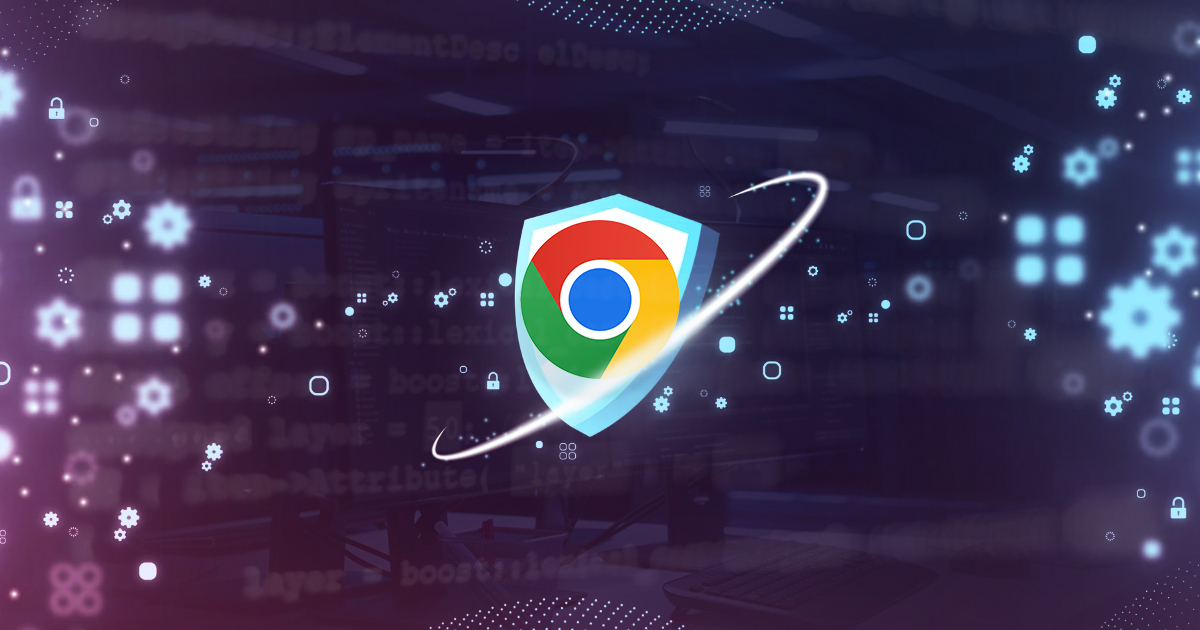Most people are in favor of more privacy for web users.
But what happens when the web’s biggest gatekeeper offers the “gift” of privacy to users? Are there strings attached?
Google says its new
IP Protection in Incognito is about shielding you from online tracking. And it does… from everyone except Google. All masked traffic now runs through Google’s own proxy, giving it a front-row seat to every “private” connection.
Sure, you’re harder to track across sites, but only because Google sits in the middle deciding which domains get masked and what data passes through.
Rather than a shield, it sounds more like a gate that only Google can open or close. Is that healthy privacy, or just a different kind of lock-in? Let’s dig deeper.
How Google’s IP Protection Works
Google’s IP Protection is basically a way for Chrome to hide your IP address when you’re in Incognito mode, but only in certain situations. If you load something from another domain (say, a YouTube page loading a Google ad), and it features on their special “Masked Domain List,” then it kicks in.
Instead of talking directly to that site, your request goes through two stops, known as a “two-hop proxy”.
- First stop is Google’s own proxy, which sees your real IP but not where you’re going.
- Second stop is an external CDN proxy, which sees the site but not your real IP.
Both hops are encrypted, so in theory neither can piece the whole puzzle together. The site you end up on just sees a rough, country-level location for you, which still lets them do things like set your language or show the right currency, but they’re not able to pinpoint you.
The upside is you’re harder to track across sites. The downside is that Google becomes the gatekeeper for which sites get masked and all traffic passes through their hands first, giving them a lot of power.
A Transparency Tax on Privacy?
On the surface, it’s a win for privacy.
The downstream effect is that third parties lose out, such as advertisers who rely on IP data to link ad clicks to sales. And it’s not just advertising. Fraud teams also use IPs as an early warning signal. Without them, it becomes harder to spot things like bot farms and repeated account abuse.
Access controls that depend on stable IPs for geofencing or rate limiting also weaken, leaving systems more exposed. Banks may struggle to block sudden login attempts from unusual regions and retailers lose an easy way to flag repeat promo abusers. Publishers will also struggle to throttle suspicious scraping traffic. In short, one of the simplest and most universal security tripwires could disappear just as online fraud is getting more sophisticated.
Smaller analytics and ad-tech companies might get cut out of the game completely if their domains aren’t on Google’s masking list. Larger players can afford to build complex alternatives based on device or behavioral signals, but not everyone has the resources to do that.
That’s where the alarm bells ring. It’s a system that lacks transparency and is open to bias, manipulation, or self-serving rules. Can we really trust a single corporation to hold so many keys to the internet?
History shows us that too much power concentrated in too few hands rarely leads to positive long-term outcomes.
We mustn’t forget that Google still makes most of its money from ads. In 2024, Google’s parent company
Alphabet made 75% of their revenue from ads, totalling almost $263 billion. That makes it tricky to cast the company as a neutral guardian of privacy.
If Google acts as the gatekeeper, then on one hand users get better protections from third-party trackers. On the other, more power is concentrated in the hands of the world’s biggest ad seller.
As
Deloitte pointed out in the context of third-party cookies, “those walled gardens will not be as affected by the moving away from third-party cookies as will the rest of the programmatic universe.” The same logic applies here. When Chrome masks IPs, Google’s own ecosystem is insulated, while independent ad-tech and analytics firms lose a key signal.
Google can keep its own measurement channels healthy while third-party tools lose precision.
Over time, that squeezes the smaller players. Their results look worse in comparison and clients start asking why they should bother with an outside tool when Google’s ecosystem seems to give cleaner reports.
AI Digital notes that walled gardens already account for 78% of global digital ad revenue, with projections pushing that to 83% by 2027. Add IP masking into the mix, and the walls only grow higher.
would need to adapt to avoid being completely sidelined. This might include the following strategies.
- Server-side tagging where possible
- Using APIs for conversion and event data
- Stronger first-party data partnerships with publishers and apps.
However, all this takes time. If third-parties don’t react quickly enough, they might fall prey to the structural push toward consolidation. And once the web’s plumbing runs through a single set of pipes, it’s a lot harder to reroute them if users don’t like the terms.
And the effects stretch far beyond the ad industry. Publishers lose the ability to localize content or prove campaign effectiveness when IP-based geotargeting and attribution break down.
According to
Linux Security, masking IPs through Google’s proxy could weaken web defense. Security teams often rely on IPs to block DDoS attacks, spot botnets, or throttle suspicious scraping traffic. If those signals disappear, fraud detection and access controls get fuzzier, while the risk of proxy hacking or system abuse grows.
It could weaken access controls that depend on stable IPs for geofencing, whitelisting, or rate limiting, leaving systems more exposed. In short, what looks like a privacy upgrade may introduce new holes in network security.
With all masked traffic routed through Google’s proxy, transparency is likely to shrink for many businesses, making the open web harder to audit or secure independently.
On the face of it, more reliance on Chrome’s proxies is a move towards more privacy, but that doesn’t necessarily lead to decentralization.
In fact, it puts Google, a for-profit ad giant, at the very center of “privacy infrastructure.” This could be seen as a conflict of interests. Centralized privacy might make the web safer, but it also makes it far more controlled.
Creating A Walled-Garden for Ads
Right now, independent ad-tech companies and analytics platforms still get much of the same raw data Google does, including IP addresses, geolocation, device identifiers, and a trail of events they can piece together to show you what’s working.
Once Chrome starts masking IPs in more situations, those outside the Google ecosystem lose a major piece of the puzzle. This will be even more worrying if they roll out IP protection to the main browser and not just Incognito tabs.
If that happens, then all Google Ads and YouTube data will be controlled solely by Google throughout the chain of browser, proxy, and analytics platforms. There’s nothing to stop Google designing the system so only their own measurement works reliably, even as they limit what’s available to others “for privacy reasons.”
Creating a walled garden like this could prompt other companies to do the same, such as Meta and Amazon. These companies already own a big chunk of ad land, scooping up around .
Under this proprietary and siloed system, it’s hard to compare ad success due to a lack of benchmarking. Data isolation without accurate IPs and geolocation could also lead to the breakdown of fine-grain targeting, such as serving hyper-local ads to cities and regions.
If Chrome’s masking cuts off granular IP data to everyone but Google, advertisers may lean even harder on Google Ads, YouTube, and GA4 because those tools still “work” inside the ecosystem. That could slowly hollow out independent ad-tech and analytics, making it harder for anyone to compete on targeting or reporting quality.
Privacy Shouldn’t Be Proprietary
At the end of the day, Chrome’s IP Protection isn’t a simple good vs bad story.
It’s a story of balancing the right to privacy with the need for transparency. Maybe Google would do well to remind themselves of their original company motto, “Don’t be evil” or the newer code of conduct from parent company Alphabet, “Do the right thing”.
In this case, doing the right thing is to approach IP protection with caution. If they make advertisers and adtech companies too reliant on their ecosystem, it probably won’t end up being in the best interests of the wider public.
If this really is about protecting users, then it needs to be done in the open with shared standards, independent oversight, and the option for competition.
Otherwise, we’re left with blind trust that the gatekeeper won’t change the rules later down the line, and that’s probably too much of a gamble.
In this brave new world, we can, and should, demand both privacy and transparency. The question is whether we’ll ask for it now or wait until it’s too late to reroute the pipework.



